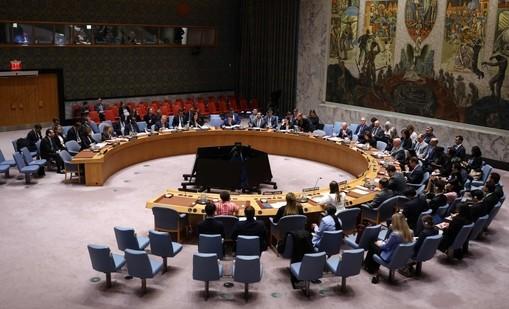
Was LeT involved? UNSC asks Pak on J&K attack, refuses to accept ‘false flag’ claim
The United Nations Security Council (UNSC) has sent a strong message to Pakistan, refusing to accept its claim of a “false flag” operation in the recent Pahalgam attack in Jammu and Kashmir. In a closed-door meeting, UNSC members questioned Pakistan on the involvement of Lashkar-e-Taiba (LeT), a terror outfit based in Pakistan, in the attack.
The meeting was requested by Pakistan, which had claimed that the attack was carried out by Indian forces to discredit Pakistan. However, UNSC members were not convinced by Pakistan’s narrative, and instead, asked tough questions about the role of LeT in the attack. Some members reportedly highlighted the targeting of tourists based on their religion, which has raised serious concerns about the incident.
The Pahalgam attack took place on October 11, when a group of terrorists opened fire on a bus carrying tourists in the Anantnag district of Jammu and Kashmir. The attack resulted in the killing of eight people, including six civilians and two Indian Army personnel.
Pakistan had immediately claimed that the attack was a “false flag” operation carried out by India to shift the focus from the Kashmir issue. However, India has denied these allegations, saying that the attack was carried out by Pakistan-based terrorists.
The UNSC meeting was significant as it put pressure on Pakistan to provide evidence of its claims. Pakistan’s attempts to spin the narrative as a “false flag” operation were met with skepticism by UNSC members, who demanded concrete evidence to back up its claims.
The meeting was also notable for the fact that some UNSC members raised concerns about the targeting of tourists based on their religion. This is a serious violation of human rights and international humanitarian law, and the UNSC members’ concerns reflect the gravity of the situation.
The Pahalgam attack has sparked widespread outrage and condemnation, both within India and internationally. The incident has highlighted the need for Pakistan to take concrete action against terrorist outfits operating from its soil.
Pakistan’s refusal to take action against these outfits has been a major source of concern for the international community. The country’s failure to crack down on terrorist groups such as LeT and Jaish-e-Mohammed (JeM) has led to numerous attacks on Indian soil, including the 2008 Mumbai attacks and the 2019 Pulwama attack.
In recent years, Pakistan has made some efforts to crack down on terrorist groups, including the arrest of several top JeM leaders. However, these efforts have been inadequate and have failed to address the root causes of terrorism in the region.
The UNSC meeting is a significant development in the wake of the Pahalgam attack. The refusal of UNSC members to accept Pakistan’s “false flag” narrative is a clear indication that the international community will not tolerate Pakistan’s attempts to spin the narrative and shift the focus away from its own responsibility in promoting terrorism.
The meeting is also a reminder that the international community will not tolerate the targeting of innocent people based on their religion or ethnicity. The Pahalgam attack has highlighted the need for Pakistan to take concrete action against terrorist outfits operating from its soil and to ensure that its territory is not used to launch attacks on other countries.
In conclusion, the UNSC meeting has sent a strong message to Pakistan that it will not accept its “false flag” narrative on the Pahalgam attack. The refusal of UNSC members to accept Pakistan’s claims is a clear indication that the international community will not tolerate Pakistan’s attempts to spin the narrative and shift the focus away from its own responsibility in promoting terrorism.
Pakistan needs to take concrete action to address the root causes of terrorism in the region and to ensure that its territory is not used to launch attacks on other countries. The international community will be watching closely to see if Pakistan takes concrete action to address these concerns.



